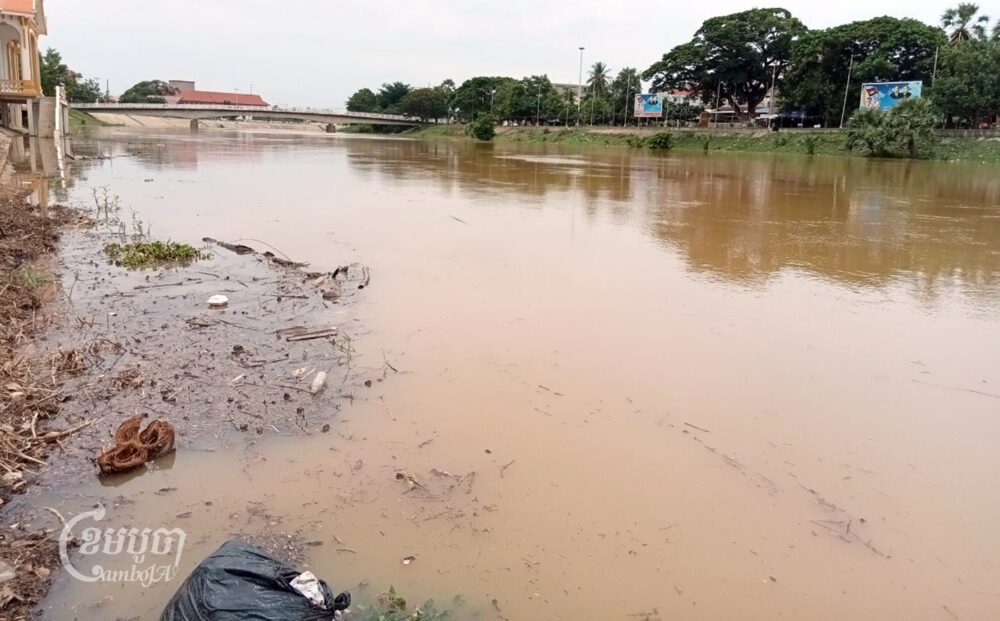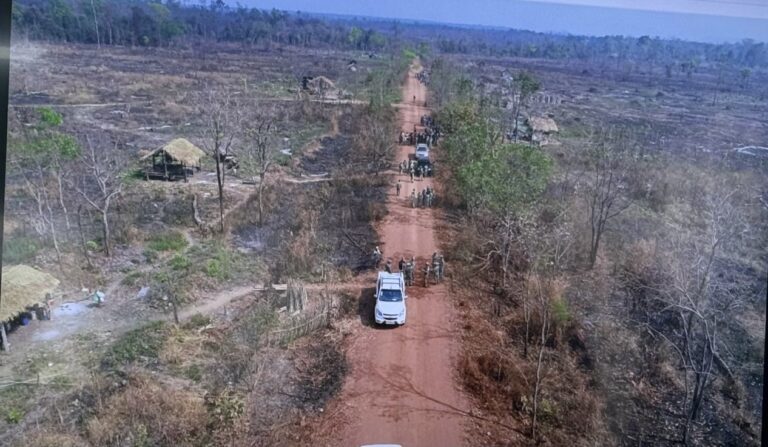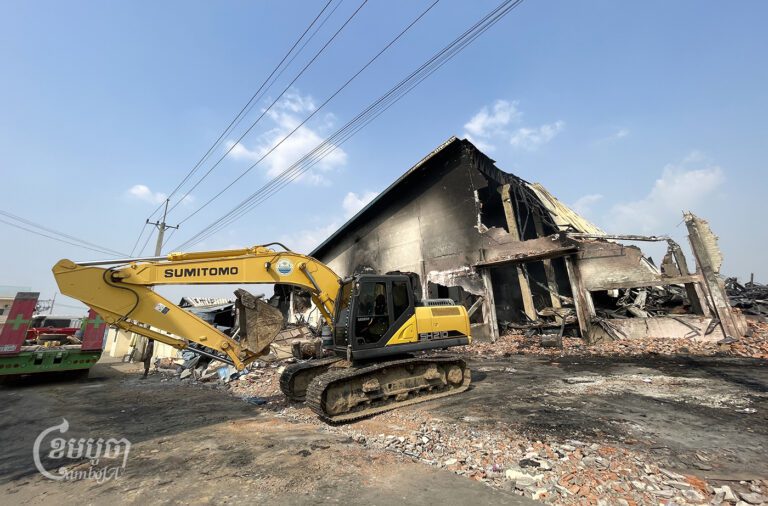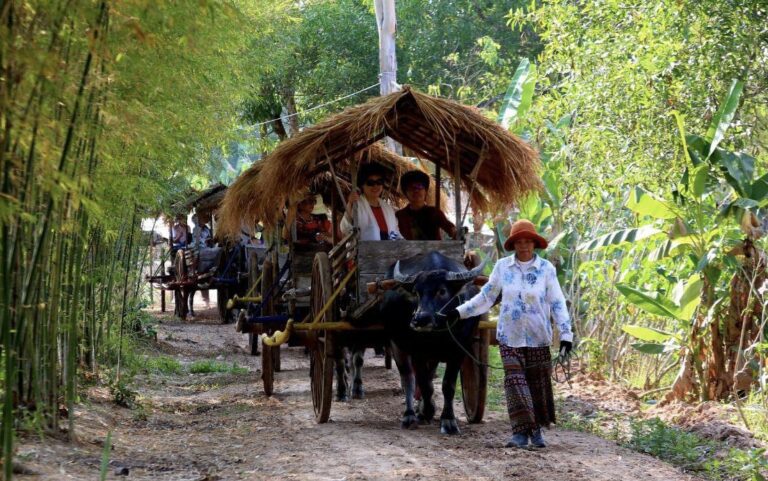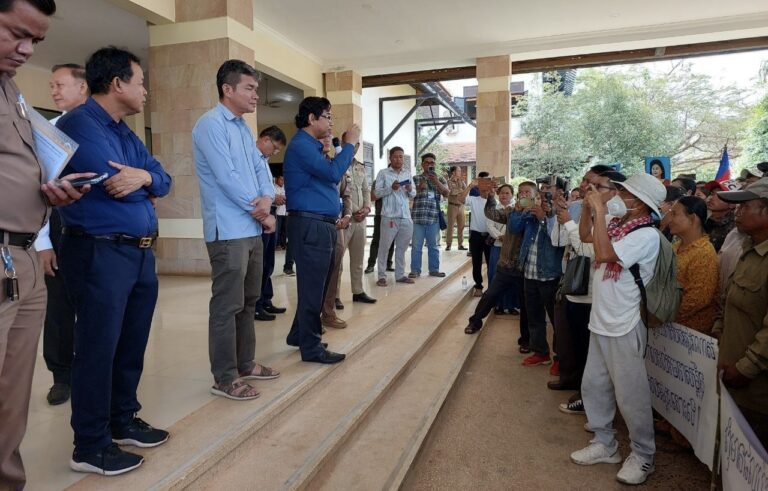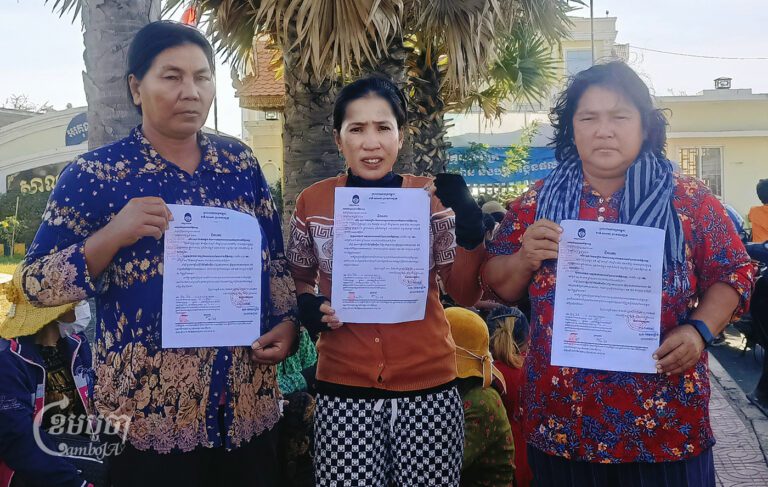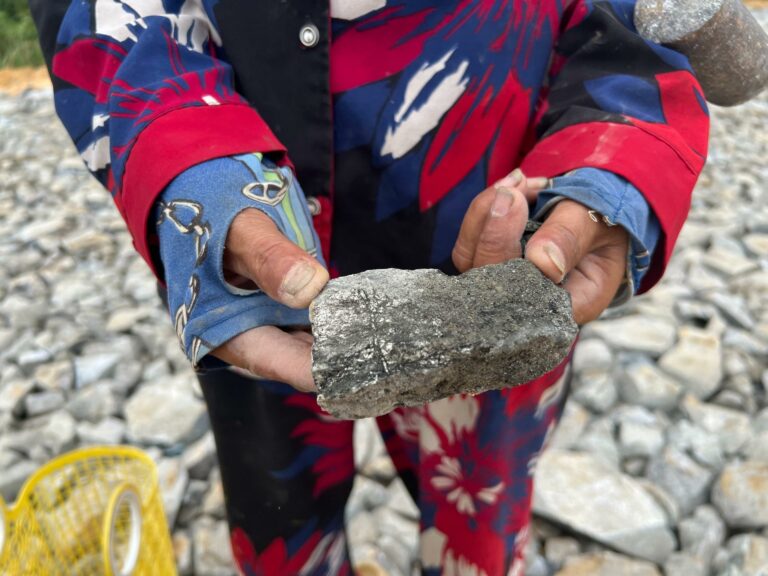After waste from a Battambang-based industrial company polluted the Sangke river, the Environment Ministry imposed fines of around half a million dollars and order the company to relocate 10 kilometers away in a letter issued Thursday.
The Chinese-owned Phoenix Industrial Co., Ltd. in Treng commune had been “causing water pollution, affecting biodiversity and people’s livelihoods,” the letter stated.
The Environment Ministry ordered Phoenix Industrial to pay $465,000 to the ministry’s Environment and Social Fund by October 20, along with additional fines.
The Environment Ministry said in its letter that the company had “intentionally” released waste into the river, killed fish and failed to properly dispose of its liquid waste.
The company had been operating without an environmental and social impact assessment report, the Environment Ministry stated.
The ministry ordered the company to rehabilitate the environment around the factory site by November 20 and warned of further legal action in case this did not occur.
The Ministry of Industry, Science, Technology and Innovation had previously issued a letter on August 4 ordering Phoenix Industrial to suspend all production for two weeks after experts found that the company was leaking black liquid waste into the river several days before.
According to the Industry Ministry, the Sangke River became abnormally black due to a toxic substance leaking from a Chinese medicine factory, killing some fish along the river.
“This is the third time the company has caused serious environmental impact,” the Industry Ministry said.
Battambang provincial governor Sok Lou claimed that the harms caused by the pollution were minimal, saying the river quality was fine now.
“When we heard about leaking liquid into the river, I ordered my officers to investigate and we found there was liquid flowing, but the company stopped it immediately,” Lou claimed.
Battambang’s water supply authority had tested the river and found after the company stopped leaking waste water the river had returned to safe quality, Lou said.
“When people see the water turn red, they think it was because of pollution, in fact [the authorities] already tested and didn’t find it was polluted. So, in the Sangke river after that there is no poisonous substance flowing in the river,” he said.
Battambang’s Provincial Department of Environment Director Kort Boran told CamboJA that the “the impact was not serious” to people or the environment.
But he added: ”I can not confirm the extent [of the impact], because it requires scientific evaluation, only technical experts from the Environment Ministry can confirm the extent of the impact on this issue.”
Boran said environment ministry officials had previously warned the factory about polluting the river but the issue had persisted.
“We have provided the recommendation but the factory did not listen, authorities could not tolerate it and need to make sure they are careful in their business because we need to make sure it won’t affect the environment and the public’s health,” Boran said.
Boran said he had no further information on where exactly or when the factory would relocate: “I don’t know where they move to and when they get ready to move. It is beyond my jurisdiction.”
CamboJA could not reach Phoenix Industrial board chairman Fangwen Shuai for comment.
A Phoenix Industrial employee answering a phone number listed for the company on August 4, who gave her name as Nika and would not disclose her identity, said her firm signed an agreement with the authorities agreeing not to dump or drain away toxic chemicals into the river again. The number no longer worked when CamboJA called again on Monday.
A Bak Rotes commune resident living along the Sangke River, who declined to provide her name, said that she was grateful that authorities took action against the company.
She said that “water in the Sangke River turned red and was so dirty that I do not dare to use it and buy pure water for drinking.”
“I am happy because the Sangke river no longer pollutes so that I can use water from the Sangke river without fear,” she said.


